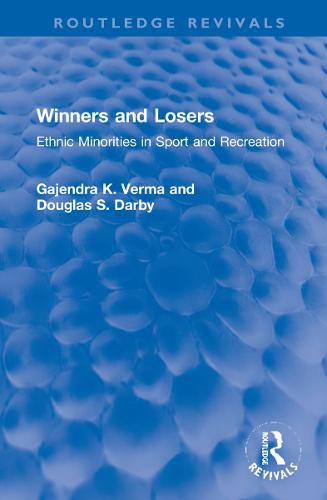Readings Newsletter
Become a Readings Member to make your shopping experience even easier.
Sign in or sign up for free!
You’re not far away from qualifying for FREE standard shipping within Australia
You’ve qualified for FREE standard shipping within Australia
The cart is loading…






First published in 1994, Winners and Losers is based upon a two-year study carried out in Manchester. Using a wealth of research material gathered from 1000 respondents from seven ethnic minority groups, it details the social, cultural, and religious priorities of these groups, and through this, their involvement with sport and physical recreation. A major theme of the book is that all those involved in the promotion of sport and recreation facilities in whatever context should recognise that ethnic minority groups are different, and their differences need to be understood, respected and accepted. It is important for the providers and the ethnic minority groups to learn about each other and understand the motives which underlie each other’s responses and recognise the limitations which define the boundaries of the possible for both sides. This book is a must read for scholars and researchers of education, and multiculturalism.
$9.00 standard shipping within Australia
FREE standard shipping within Australia for orders over $100.00
Express & International shipping calculated at checkout
First published in 1994, Winners and Losers is based upon a two-year study carried out in Manchester. Using a wealth of research material gathered from 1000 respondents from seven ethnic minority groups, it details the social, cultural, and religious priorities of these groups, and through this, their involvement with sport and physical recreation. A major theme of the book is that all those involved in the promotion of sport and recreation facilities in whatever context should recognise that ethnic minority groups are different, and their differences need to be understood, respected and accepted. It is important for the providers and the ethnic minority groups to learn about each other and understand the motives which underlie each other’s responses and recognise the limitations which define the boundaries of the possible for both sides. This book is a must read for scholars and researchers of education, and multiculturalism.